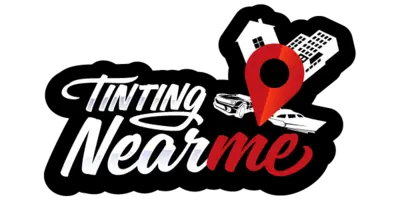How to Get Medical Exemption for Window Tint in Louisiana in 2024
Just like navigating through a maze, securing a medical exemption for window tint in Louisiana can seem daunting, but with the right information, you’ll find it’s not as hard as it looks. You’ll need a signed affidavit from a licensed optometrist or physician, and there are specific conditions you must meet under RS 32:361.2. But what are the exact steps you should take? And how can you ensure you’re following the law to the letter, while still protecting your eyes from the sun’s glare? Let’s unmask this process together.
The information on myeyerx.net isn’t legal advice; consider it a starting point. Always verify with local and state authorities, as the final decision rests with you. We are not lawyers. For specific legal guidance, we can refer you to legal experts. Remember, knowledge of both state and local laws is essential, and even law enforcement might not be fully updated. We aim for accuracy but advise double-checking for the latest regulations.
Key Takeaways
Key Takeaways
Key Takeaways
- Obtain a signed affidavit from a licensed optometrist or physician linking a medical condition to harmful sun exposure.
- Keep a copy of the signed affidavit in the vehicle as proof of eligibility for the tint exemption.
- Ensure compliance with the review process every three years to maintain the exemption.
- Keep in mind that the AS-1 line of the windshield must remain untinted, irrespective of the medical exemption
Need Help? Our Doctors Are Here For You!
Just like navigating through a maze, securing a medical exemption for window tint in Louisiana can seem daunting, but with the right information, you’ll find it’s not as hard as it looks. You’ll need a signed affidavit from a licensed optometrist or physician, and there are specific conditions you must meet under RS 32:361.2. But what are the exact steps you should take? And how can you ensure you’re following the law to the letter, while still protecting your eyes from the sun’s glare? Let’s unmask this process together.
Understanding Louisiana’s Tint Laws
Navigating Louisiana’s tint laws can be a bit tricky, especially when it comes to medical exemptions. You see, Louisiana permits a medical exemption for window tint if you have a physical or medical condition that makes you more susceptible to the harmful effects of the sun.
The key to securing this exemption lies in an affidavit. This is a legal document that must be signed by a licensed optometrist or physician. In it, the health professional should articulate the necessity of sun screening material on your vehicle. This isn’t a quick fix, though. The affidavit must be kept in your vehicle at all times as proof of your eligibility for the medical exemption.
The state isn’t lax about this exemption, either. Every three years, your need for the tint may be up for review. This means your medical or physical condition will be re-evaluated to ensure the continued necessity of the window tint.
But there’s a catch. Not everyone is eligible for this exemption. If you’ve been convicted of violent crimes or drug offenses, you’re out of luck. The state won’t allow you to have the medical exemption for window tint.
Understanding these tint laws is crucial before you proceed with the process. It’s not just about throwing a shade on your vehicle windows; it’s about adhering to the regulations that govern the use of such material. So, before you rush to your optometrist, ensure you’re familiar with these rules to avoid running afoul of the law.
Securing Medical Documentation
To secure a medical exemption for window tint in Louisiana, you’ll need to get a signed affidavit from a licensed optometrist or physician. This affidavit is a critical document that validates your need for a window tint exemption due to a specific physical condition. It’s important to note that the condition must be directly linked to the effects of the sun, demonstrating a clear necessity for tinted windows.
Your optometrist or physician should properly detail your medical condition in the affidavit. Ensure they include how sun exposure aggravates your condition and why window tint is a necessary precaution. Once signed, keep a copy of this affidavit in your vehicle at all times. This serves as proof of your eligibility for the medical exemption, should you be questioned by law enforcement.
Every three years, your medical exemption might be up for review. This ensures the continued relevance of the exemption to your medical condition. Be aware that individuals convicted of violent crimes or drug offenses are not eligible for this exemption.
Here’s a quick guide to help you understand the process:
Steps | Action | Required Document |
1 | Get an affidavit | Signed by a licensed optometrist or physician |
2 | Detail your condition | State the sun effects on your physical condition |
3 | Keep proof | Keep a copy of the signed affidavit in your vehicle |
Securing the right medical documentation is a vital step in getting a window tint exemption in Louisiana. So, take the necessary steps to ensure you meet all the requirements.
Applying for Tint Exemption
Once you’ve secured your medical affidavit, it’s time to dive into the actual application process for a window tint exemption in Louisiana. Remember, you or a family member operating the vehicle must be the registered owner. You’ve already obtained an affidavit signed by a licensed optometrist or physician, which is pivotal for this process.
The affidavit must clearly state the medical condition involving the effects of the sun, which makes it necessary to use sun screening material on your vehicle. It’s not enough to merely mention a medical condition – you need to explicitly link it to the sun’s impact. The state needs to understand why this exemption is necessary for your health.
Once you’ve ensured your affidavit meets these criteria, make multiple copies. You’ll need to submit one with your application, but it’s also essential to keep a copy in your vehicle at all times. This is your proof of eligibility for the medical exemption, and you may need to show it to law enforcement officers if questioned.
Be aware that there might be a fee involved in the application process. Additionally, the exemption may be subject to review every three years to ensure continued eligibility. This means you’ll need to maintain current and accurate documentation of your medical condition.
Navigating Potential Challenges
While you’re working through the process, it’s crucial to be aware of potential challenges that could arise when seeking a medical exemption for window tint in Louisiana. One of the first hurdles is establishing medical necessity. You must obtain written certification stating a condition involving the effects of the sun. This document must be signed by a licensed optometrist or physician and should clearly identify your medical need for the Louisiana Window Tint Medical exemption.
The State Police review these applications, so it’s important to ensure your written certification is thorough and convincing. If your application is deemed insufficient, you may be asked to provide further evidence of your medical condition. To avoid this, be sure to consult with your healthcare provider about the best way to present your case.
Once you’ve successfully obtained your Window Tint Medical exemption, you’re not completely out of the woods. You must keep a copy of the written certification in your vehicle at all times. This is crucial for proving your eligibility for the legal tint, especially if questioned by law enforcement.
Another potential challenge is the review process. The State Police may review your exemption every three years. If your condition has improved or is no longer influenced by the effects of the sun, you may lose your exemption.
Lastly, be aware that the AS-1 line of your vehicle’s windshield cannot be tinted under any circumstance, as per Louisiana law. Despite your medical exemption, this area must remain free of tint for safety reasons. Navigating these potential challenges can be tricky, but with careful planning and understanding, you’ll be well-prepared.

Don't want the hassle? Let us take care of your exemption for you!
MyEyeRx.net is here to help you streamlines the process of obtaining a medical exemption for window tint online. Explore our services to easily transform your window tint from non-compliant to legally approved!
Because of the differences in each of the 50 states, we’ve crafted distinct guides for securing window tint medical exemptions for each of the individual states.

Toriano (Tory) Dewberry
Become one of the many satisfied clients Toriano has assisted in obtaining a medical exemption without stepping out of their homes. Click the button below to begin and discover if you're eligible for a medical exemption.

Toriano (Tory) Dewberry
Become one of the many satisfied clients Toriano has assisted in obtaining a medical exemption without stepping out of their homes. Click the button below to begin and discover if you're eligible for a medical exemption.
Frequently Asked Questions (FAQ'S)
How Do I Get Dark Tint Legal in Louisiana?
To make your dark tint legal in Louisiana, start the tint documentation process. Visit an authorized tint provider and get an affidavit from a licensed physician stating your need due to a medical condition. Submit the application following the correct steps. Remember, Louisiana’s tint laws are strict, so adhere to the legal tint limit. Understand the tint exemption criteria and be aware of penalties for violations. Don’t forget to renew your tint exemption when required.
What Medical Conditions Qualify for Window Tint in Pa?
In PA, you can qualify for window tint exemption if you’ve conditions like migraines, lupus or extreme light sensitivity. You’ll need a doctor’s recommendation stating the need for sun shielding. Apply through the Pennsylvania Department of Transportation, they may consult with their Medical Advisory Board for approval. Make sure your tint level is legal and compliant with PA tinting laws. Remember, these steps help ensure the tinting benefits align with health needs.
What Medical Conditions Qualify for Window Tint in Illinois?
In Illinois, you can apply for a window tint medical exemption if you’ve conditions like lupus, extreme light sensitivity or migraines. You’ll need a signed statement from your physician explaining the medical need. Remember, understanding the specific qualifying conditions is key. This exemption eases window tint restrictions but also calls for vehicle inspection requirements. So, get your tint application ready and seek your physician’s certification. It’s all about reaping tinting benefits while adhering to Illinois legislation.
What Medical Conditions Qualify for Window Tint Ny?
In NY, you can get a medical exemption for window tint due to skin conditions, eye sensitivity, or other health issues. Check the NY DMV guidelines and start the application submission process. You’ll need documentation from a licensed physician. The tinting benefits are clear, but remember, NY tint regulations still apply, so know the tint limitations. Keep track of the renewal procedures, as you’ll need to keep your exemption current.

MyeyeRx.net
Ensuring your tint is not just about style, but legality and safety.
Let us guide you through the maze of state regulations to legal clarity.

Conclusion
So, there you have it! Navigating Louisiana’s tint laws may seem like climbing Mount Everest, but with proper medical documentation and following the application process, it’s a breeze. Remember to keep that affidavit handy at all times. After all, it’s your golden ticket to a safer, sun-protected ride. Stay safe, stay compliant, and let that tinted ride be your shield against the sun’s relentless rays!
Looking to find a Reputable Window Tint Company In Louisiana?
Checkout Tintingnearme.com to Find A Local Tint Shop
After learning about window tint laws, the next step is to find a trusted local window tinting shop. Tinting Near Me offers a selection of reputable shops knowledgeable in both quality tinting and legal standards, including medical exemptions.
Choose a shop from their list for expert service that meets legal requirements and enhances your vehicle’s compliance and protection.


